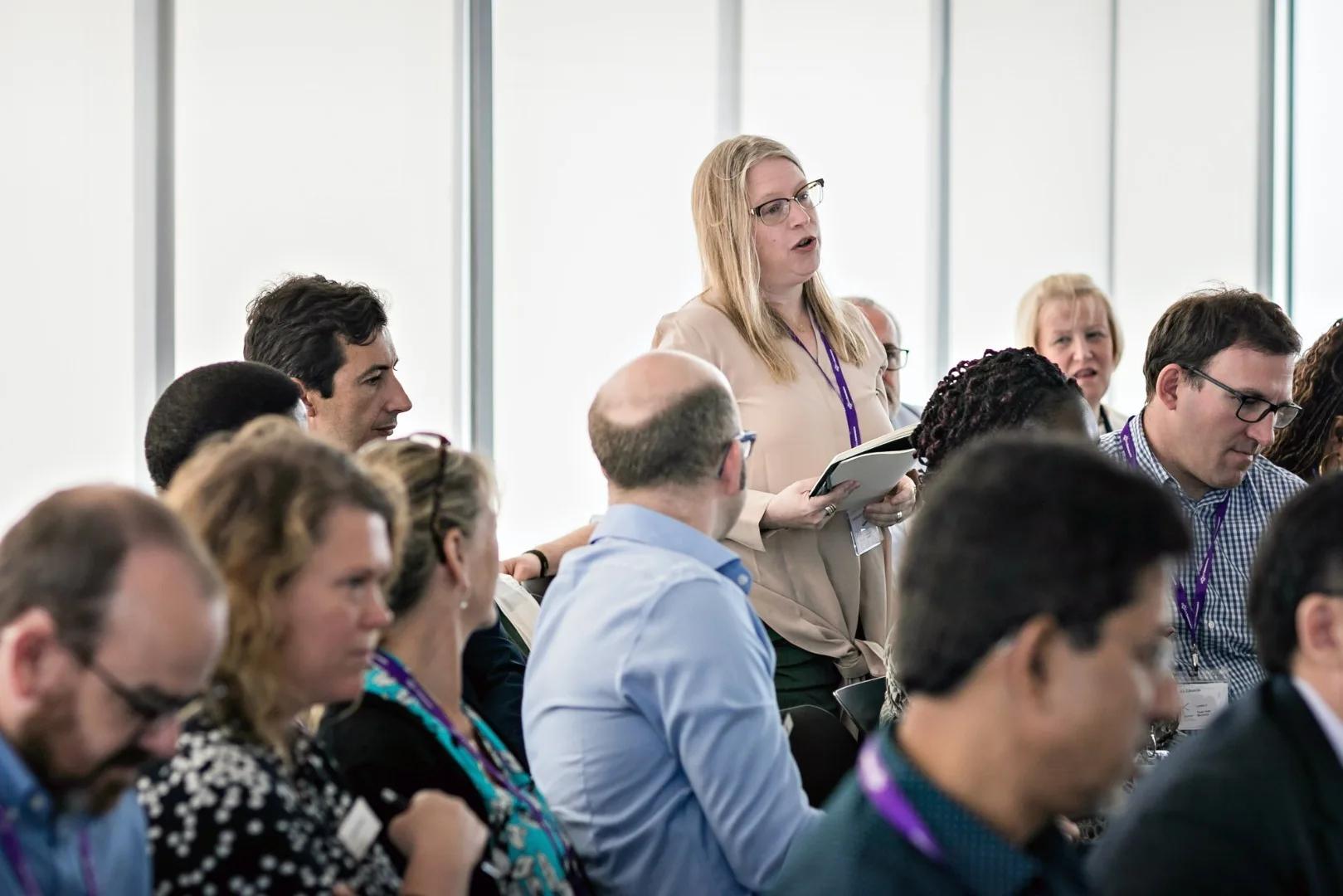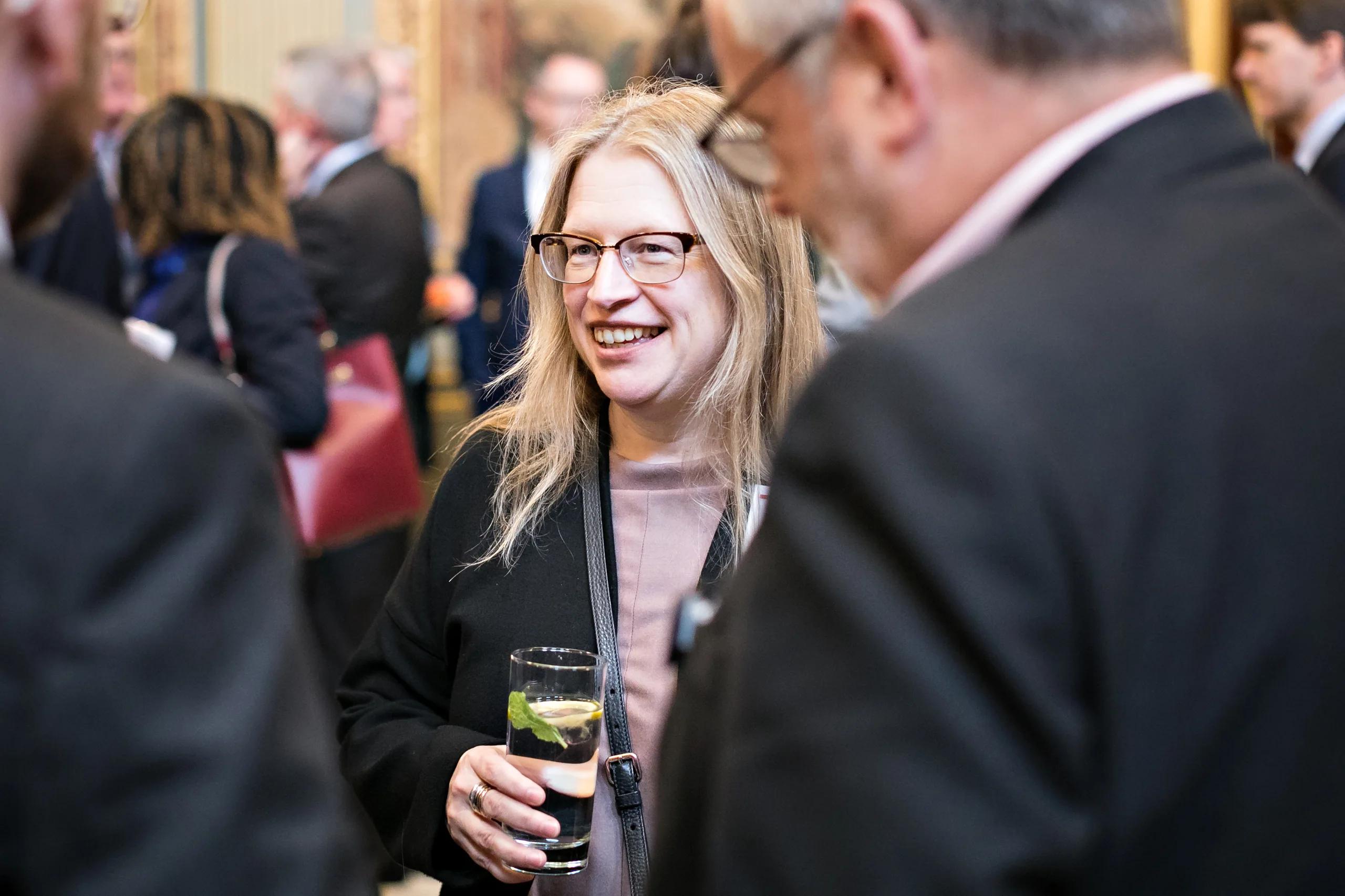-
What we doPersonal development
- Accelerating your impact
- Leadership for young people
- Navigating transitions
- Boosting collaboration
- All programmes
-
Social campaignsSocial campaigns
Taking a stand on social issues. Join us in investing for a better future
Read moreCurrent campaignsRelated -
ImpactEvidence
-
AboutWho we areLocations
Julie's Story
Julie Sanders
/
6 min read
Fostering inclusion to create a successful education strategy.

After I attended the first phase of my global leadership programme with Common Purpose, it was clear to me that we could take some fresh approaches to developing our new place-based Higher Education strategy. The learning has been immensely useful in working across different sectors.
I am currently the Deputy Vice-Chancellor of Newcastle University. Shortly after returning from the programme, I took on full line management for all three of our big faculties with special responsibilities for academic strategy, the university's work and commitment to Equality, Diversity and Inclusion, and Environmental Sustainability.
Working within the ecosystem of the community, Julie Sanders and her team established an inclusive placebased strategy that is bringing together students, partners and the community to build a better future.
Another of my responsibilities is with our Engagement and Place substrategy with its focus on social justice. I was actively leading on this project when I returned from the programme. I knew that this strategy couldn’t just be written within the university itself. It would involve working across different sectors in the community in order to promote learning and research that is rooted in the local – the unique history, environment and culture of Newcastle and our wider region, which our university is deeply invested in.
The learning from the Common Purpose programme, especially on Cultural Intelligence, has been immensely useful in working across different sectors. It helped me recognize the challenges and significance of cross-sectoral working and co-production.
Hearing the different voices in the room (especially the muted ones)
My time on the programme brought to focus different ways of working across sectors, all the different constituencies with different needs, and the importance of being inclusive. Being inclusive means hearing all the different voices in the room, even the voices that are absent.
I found myself really thinking about those voices that are often not in the room. I realized that if you focus only on the voices you hear, you often find yourself talking to the usual suspects and hearing the same things being said.
However good we are at creating and planning in universities, we need to be able to hear all the other voices, especially the absent ones.
Newcastle University has always been committed to co-production with the community. But the programme has really helped me to put that in action within my role. I have understood that for a place-based strategy to really thrive and be meaningful, we can’t sit alone in our offices and come up with targets and goals.
Creating new positions to be more inclusive
In order to be able to hear all the other voices around us, we brought people from a wide range of background across all sectors into the conversation. We created some new positions in the university and now have eight deans operating across the university but also with external partners to help us achieve our vision.
Our Dean of Innovation and Business has industry experience, while our Dean of Engagement and Place has worked extensively in the local authority sector among other things. We also have a Dean of Sport, a Dean of Equality, Diversity and Inclusion, a Dean of Culture and Creative Arts, a Dean of Social Justice, a Dean of Advancement, and now a Dean of Lifelong Learning and Professional Practice. Each one brings with them their own expertise, perspective and voice.
The programme allowed me to have the time and the headspace to think on a deep level, to observe how diverse groups of people interact and to understand how each person’s role plays a part in completing the whole. As a result, I have made personal commitments to work on the inclusion agenda at Newcastle that Common Purpose is still helping me to act on and realize.
Climate emergency
The success of Newcastle University’s ongoing climate emergency work and our broader work on global social justice issues is a direct result of our new strategy.
The university, our local National Health Trust and the city council simultaneously declared a climate emergency. Instead of working on different plans, we all came together and are now working as a team. The work becomes much more complex because we are navigating between different timetables, styles of working, communication and preferences; however, it also becomes much more meaningful and impactful as a result of it.
Working in an ecosystem
I can remember sitting in the room during the programme and watching all the different presentations on working with local communities. What I observed was that regardless of which country or sector they were coming from, the need to work within an ecosystem was a common theme.
By working within the ecosystem of our community, this has allowed Newcastle University to create and enable an inclusive place-based strategy that is helping the people in our community, our partners and our students be an active part of building a better future.
Newcastle University and Common Purpose are partnering on several programmes at a regional and national level to raise diverse educational attainment and progression for the students. The programmes incorporate conceptual-based projects, experiential learning, and legacy projects and partnerships with other universities for study abroad placements.

Julie Sanders is the Principal at the Royal Holloway, University of London and the former Deputy Vice-Chancellor Newcastle University's.
She took part in the CSCLeaders Programme in 2018.
Related Stories
Springer Nature
Amanda Sherratt-Smith
Beisheim Foundation

